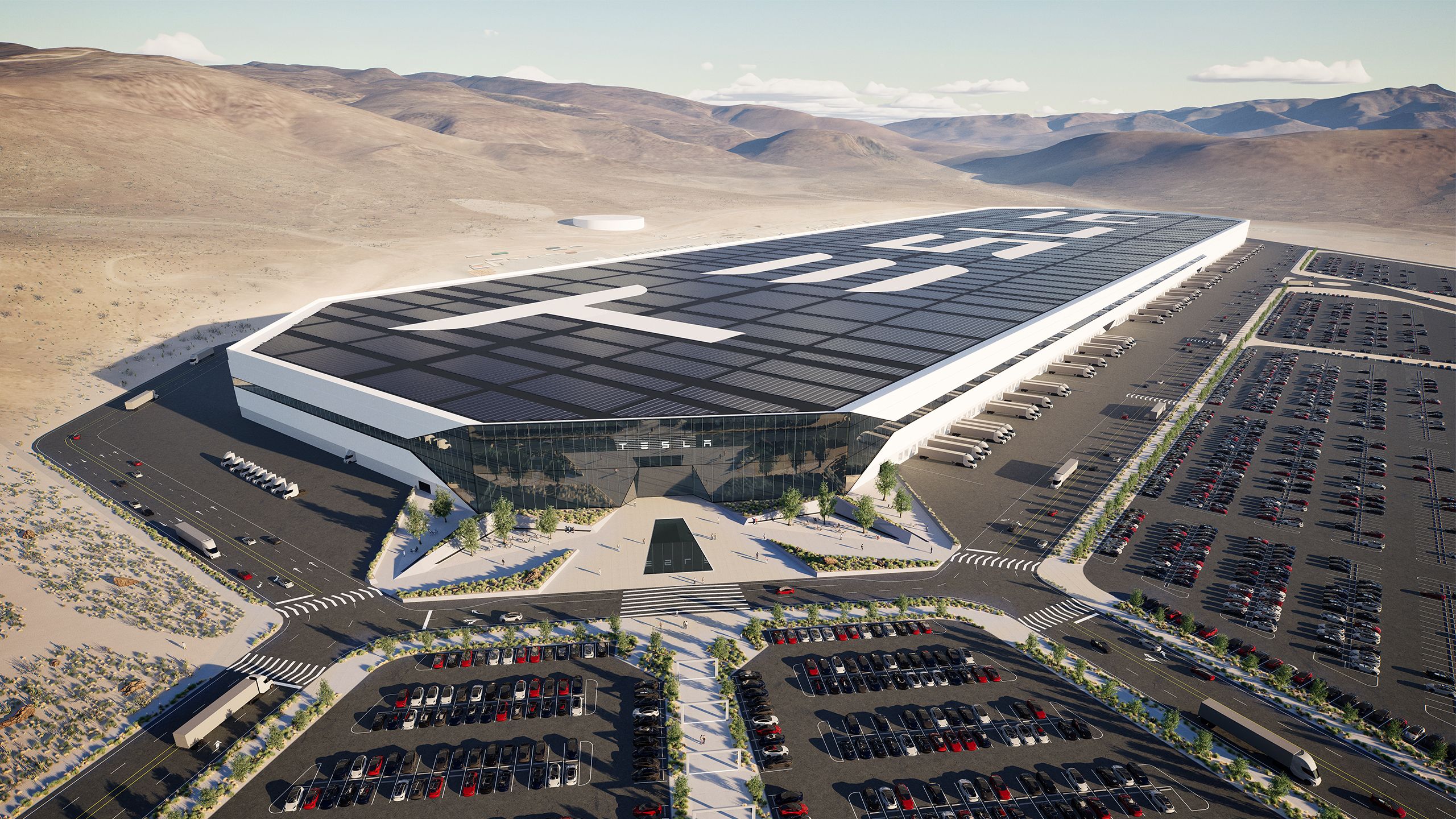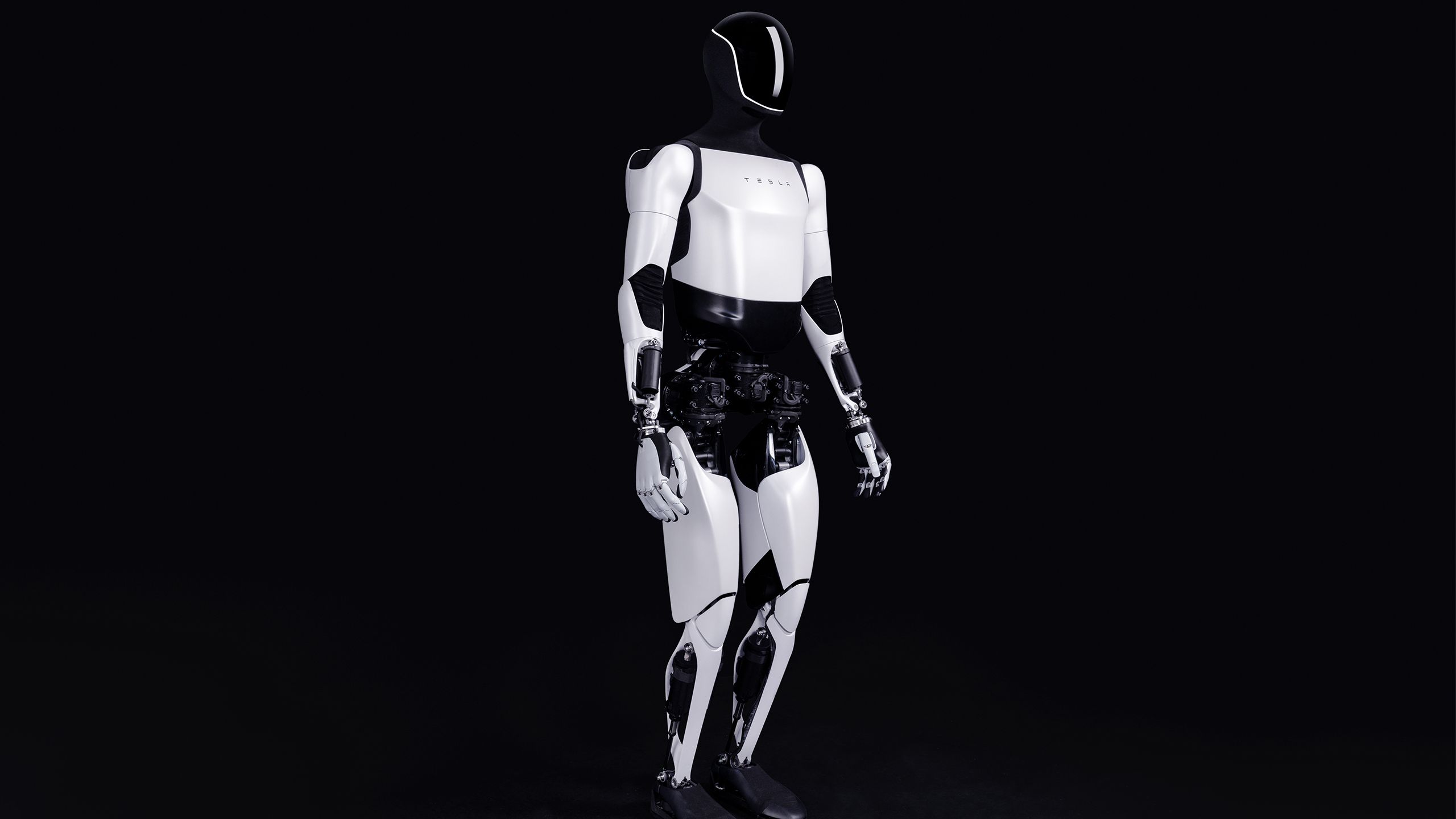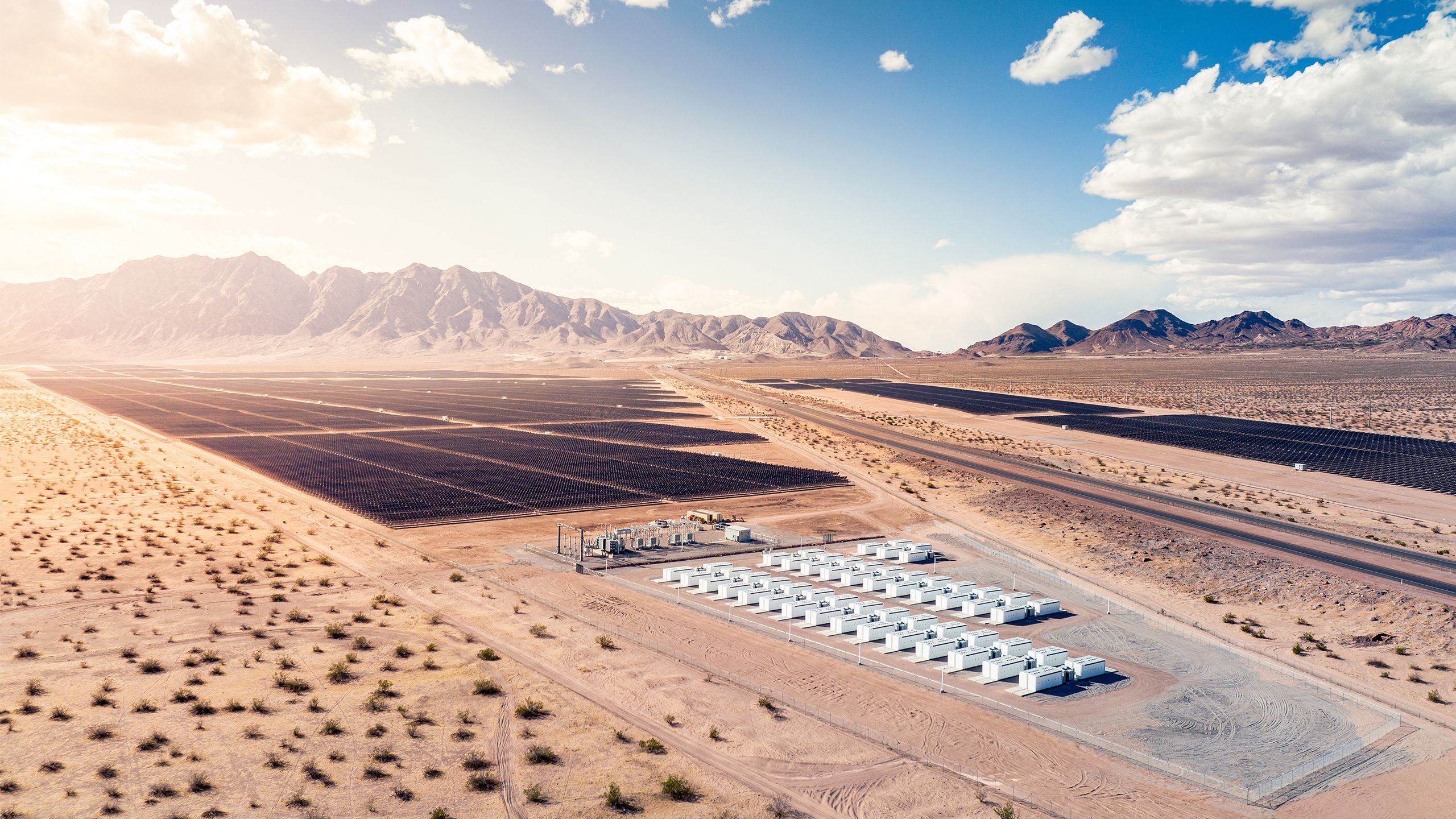Key Takeaways
- Tesla faces a vital identity decision: Does it want to be an automaker, AI firm, energy company or all of the above?
- Pressure from competitors, price cuts, and recalls have piled up, leading to a 60% share price drop.
- Tesla delves into robotics with the Optimus project, while facing uncertainties with the Cybertruck and future projects.
Tesla seems to be at yet another inflection point, one that will no doubt serve as the beginning of a new chapter in the company’s history. While the master plan that Elon Musk laid out some years ago has mostly come to fruition, Tesla faces a decision about identity in the coming years.
Tesla may have to finally decide if it’s an automaker, an AI firm, or an energy company.
Tesla models compared: Model S, Model 3, Model X, Model Y, and Cybertruck
Here’s everything you need to know about Tesla Motors, from the Roadster through to the Model Y and Cybertruck.
As competition heats up to mass produce an affordable electric vehicle, Tesla may have to finally decide if it’s an automaker, an AI firm, or an energy company.
Or might its unpredictable figurehead push the company to invest considerable resources into pursuing each of these avenues to their fullest potential simultaneously? You’ve heard of layoffs, humanoid robots, full self-driving, Cybertrucks, and Tesla Energy, so what exactly is going on right now at Tesla?
Tesla
Two types of haircuts
EV demand and early adoption
Tesla invested billions to make its electric cars profitable, and it has enjoyed margins nearly unheard of in the auto industry for years, achieving gross margins of almost 30% in 2022, driven by immense EV demand, tax credits helping to boost sales, and price hikes in 2021 and 2022 that saw Tesla’s profits soar. These margins, which shareholders love, have been under immense pressure from the likes of BYD and Xiaomi, both Chinese auto manufacturers pumping out consumer EVs at rock bottom prices.
Speaking at the New York Times DealBook Conference last November, Musk said, “There’s a lot of people who are out there who think that the top 10 car companies are going to be Tesla followed by nine Chinese car companies. I think they might not be wrong.”
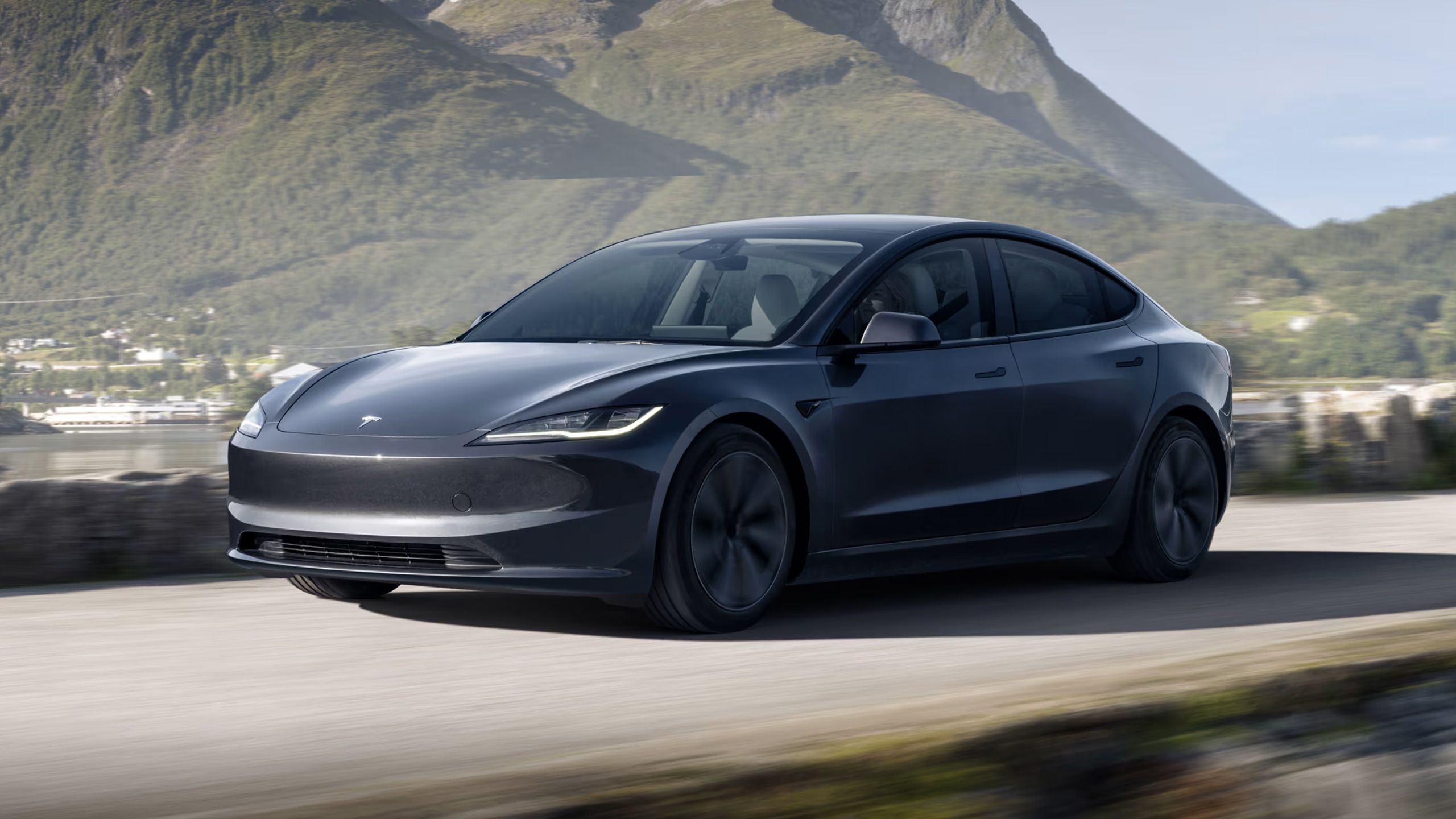
What EVs qualify for the US government’s $7,500 tax credit?
Here’s everything you need to know about obtaining a government rebate on a new EV.
As Tesla began slashing prices in 2023 to drive demand and stay competitive, those margins quickly fell, and Tesla’s share price along with it, as investors feared that margin compression could ultimately prove fatal in the race for a truly affordable electric vehicle, the same one laid out in Musk’s master plan.
Gross margins at the company fell to just over 18% in Q4 2023. As of the writing of this article, Tesla’s share price is down more than 60% from its all-time high, as investors express caution over the future of the company.
This is no small haircut considering the global headcount of Tesla stands in excess of 140,000 workers.
Perhaps partly in response to those pressures, and the need to maximize cost-cutting in a tighter margin environment, Tesla this week began laying off approximately 10% of its global workforce. This is no small haircut considering the global headcount of Tesla stands in excess of 140,000 workers.
“As we prepare the company for our next phase of growth, it is extremely important to look at every aspect of the company for cost reductions and increasing productivity,” Musk said in a memo shared with employees. “For those remaining, I would like to thank you in advance for the difficult job that remains ahead. We are developing some of the most revolutionary technologies in auto, energy and artificial intelligence.”
Tesla
The Optimus in the room
Where do the humanoid robots fit in?
Tesla has made no secret of its push into humanoid robotics with the Optimus project. While updates are few and far between these days, and the company may be many years away from a commercially viable model, the robot represents Musk’s bullish view on the future of robotics, particularly when paired with Tesla’s neural network, currently being used to train on images and data for the Full Self Driving capability in Tesla vehicles that Musk promises (and has for years) will come someday soon.
Musk has shared videos on X showing off the sheer strength of the Optimus robot, which will be crucial for heavy-lifting and other physically intensive tasks. The point, of course, is that Optimus would be capable of performing these tasks without the risk of injury, without collecting a salary, and without needing a break, able to work 24 hours a day, seven days a week. Most recently, Musk shared a video on X of the Optimus robot folding a t-shirt. Although a Tesla engineer later clarifed someone was operating the robot remotely, the clip showed just how much more dexterous Optimus has become over the past few months.
Tesla
The Cybertruck’s uncertain future
Too early to tell, but a rocky start
This early in the game, one can neither declare victory nor announce time of death on the Cybertruck, but a recent recall—potentially involving every Cybertruck on the road—due to an accelerator pedal that could get stuck in the depressed position after catching on some floor trim, is not a great start for Tesla’s newest model. Each new model has always come with its own set of growing pains, but the Cybertruck’s polarizing design, radical form factor, and complex manufacturing process could all prove to be significant hurdles on the road to mass adoption and profitable production. Now, it can be said that stumbling at the start line is part and parcel of a new Tesla launch. Fans of the automaker will recall significant production and quality control issues during the early days of the Model 3 and Model Y, which are now Tesla’s best-selling vehicles, with the Model Y earning the title of the world’s best-selling vehicle in 2023.
While the aesthetic and exterior design of the Cybertruck has certainly proved divisive, it is at least clear that the technologies and new techniques employed in manufacturing it may well serve as the framework for future vehicles from the company.
While the aesthetic and exterior design of the Cybertruck has certainly proved divisive, it is at least clear that the technologies and new techniques employed in manufacturing it may well serve as the framework for future vehicles for the company.
The Cybertruck employs a 48-volt wiring architecture, as opposed to the more traditional 12-volt systems found in most vehicles. This shift could significantly reduce the material use and cost associated with vehicle wiring in both electric and internal combustion vehicles. The drive-by-wire system in lieu of power steering helps the driver feel totally in tune with the Cybertruck’s wheel direction and handling.
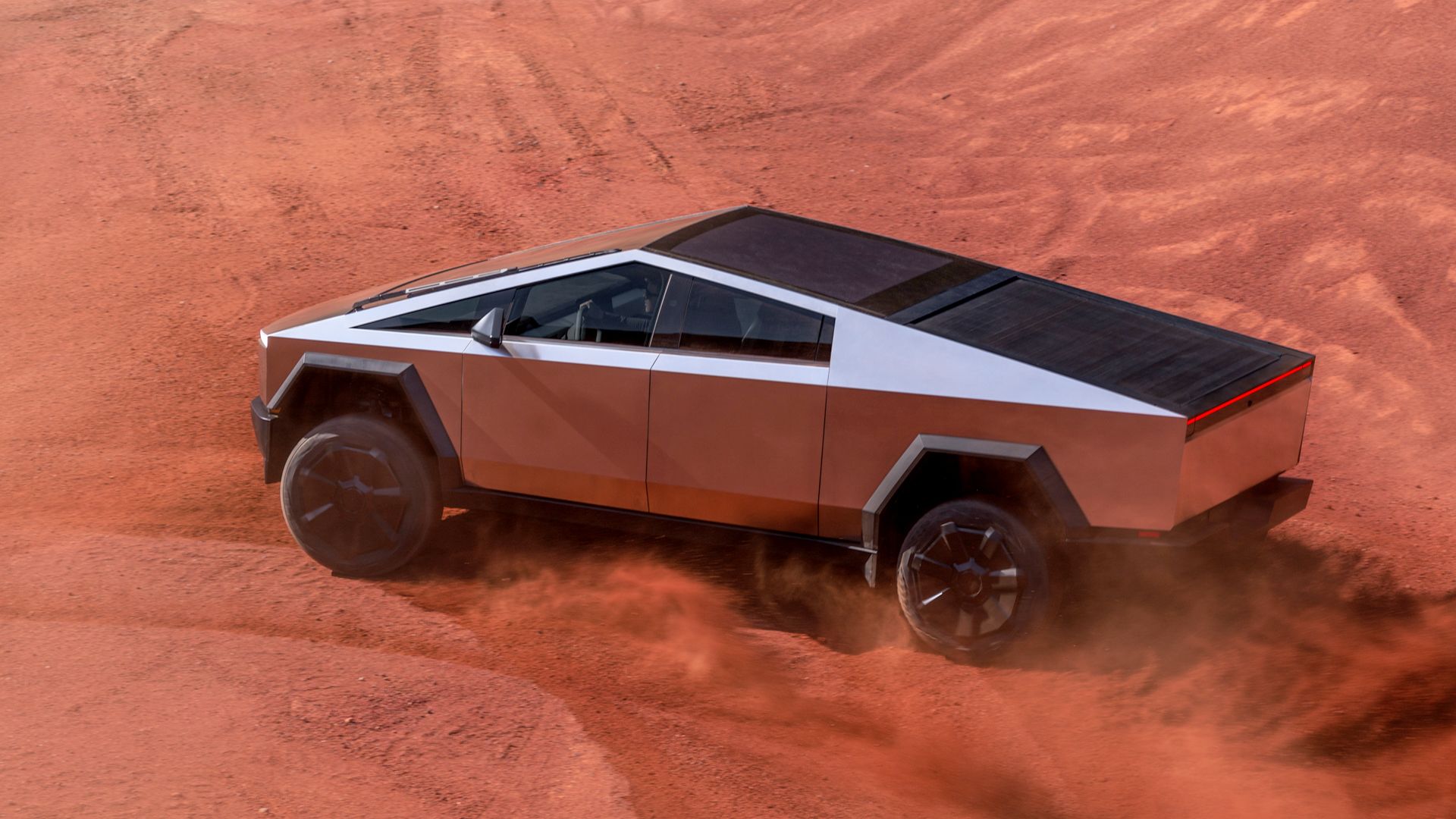
Tesla is recalling all 3,878 Cybertrucks out on the road
Newly built models will have a different accelerator pedal.
Tesla doesn’t yet provide a breakdown of Cybertruck delivery numbers, leaving analysts to estimate based on VIN numbers and other data. It’s thought that in the first quarter of 2024, Tesla delivered roughly 3,500 units of the futuristic pickup truck. Since the recent recall must specify a unit count, we can surmise that Tesla has made at least 3,878 of their electric truck. Musk believes Tesla can reach a pace of manufacturing 250,000 per year sometime in 2025. The rollout has not been helped by recently discovered issues with the accelerator pedal, prompting a seven-day halt to all Cybertruck production.
Whether the Cybertruck will be a commercial success or not remains to be seen, though shareholders should perhaps look forward to a reappropriation of resources previously taken up by the design and launch phase of the Cybertruck, towards more fruitful and mass-market endeavors.
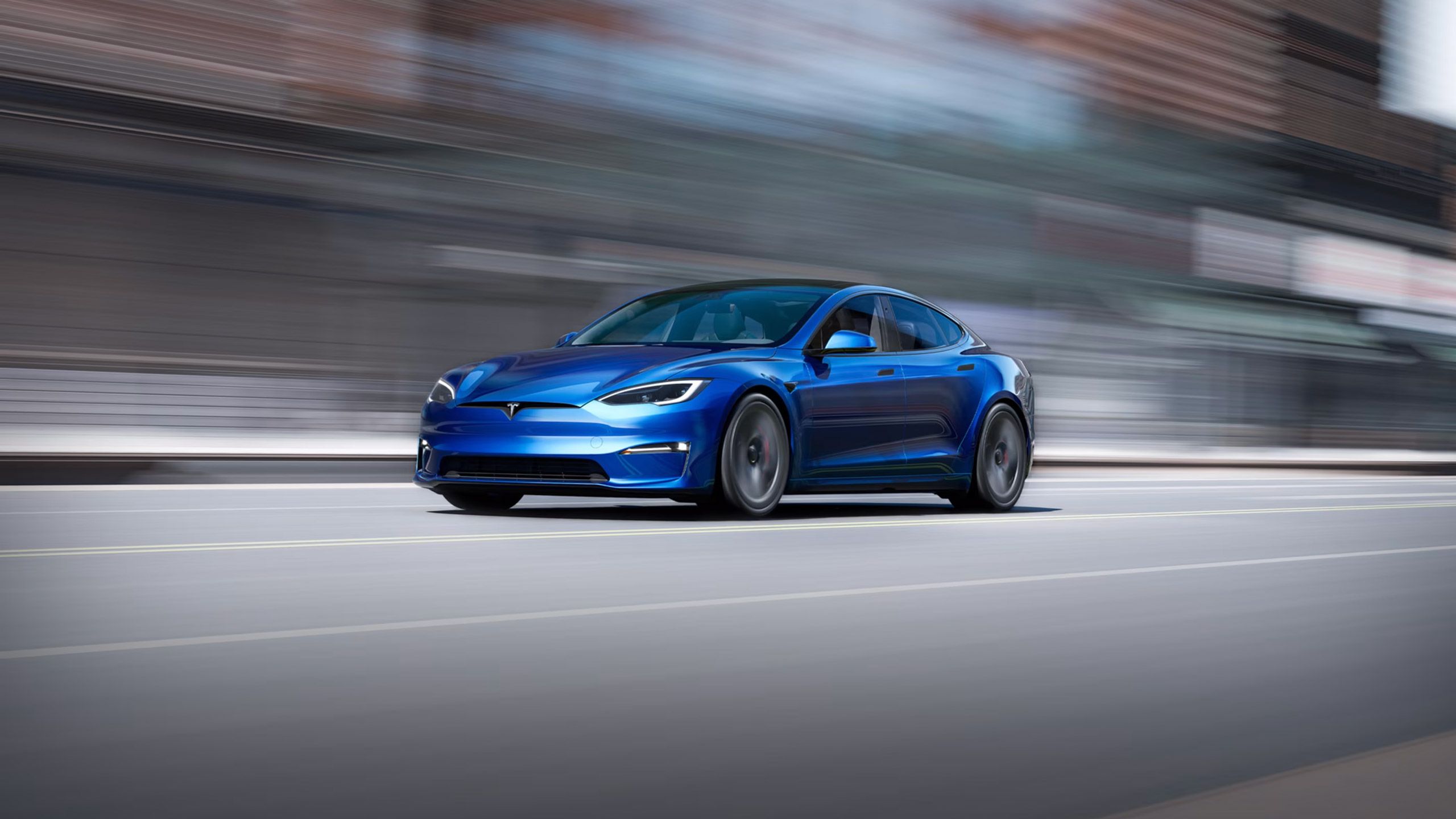 Robotaxi and Redwood
Robotaxi and Redwood
Key parts of the master plan… still not revealed
In the past month, those of us who follow Tesla have been made to feel like we know just about as much as Jon Snow about Tesla’s future Robotaxi master plan, and their supposed $25,000 EV project codenamed Redwood. That is to say… nothing. The clarity Tesla fans once felt on these topics, though sparse on details, has been upended by reports of the Redwood project being canceled entirely, posts on X from Musk contradicting those reports, and a promised Robotaxi unveiling on Aug. 8, 2024, that will hold either complete surprise or anticlimactic disappointment.
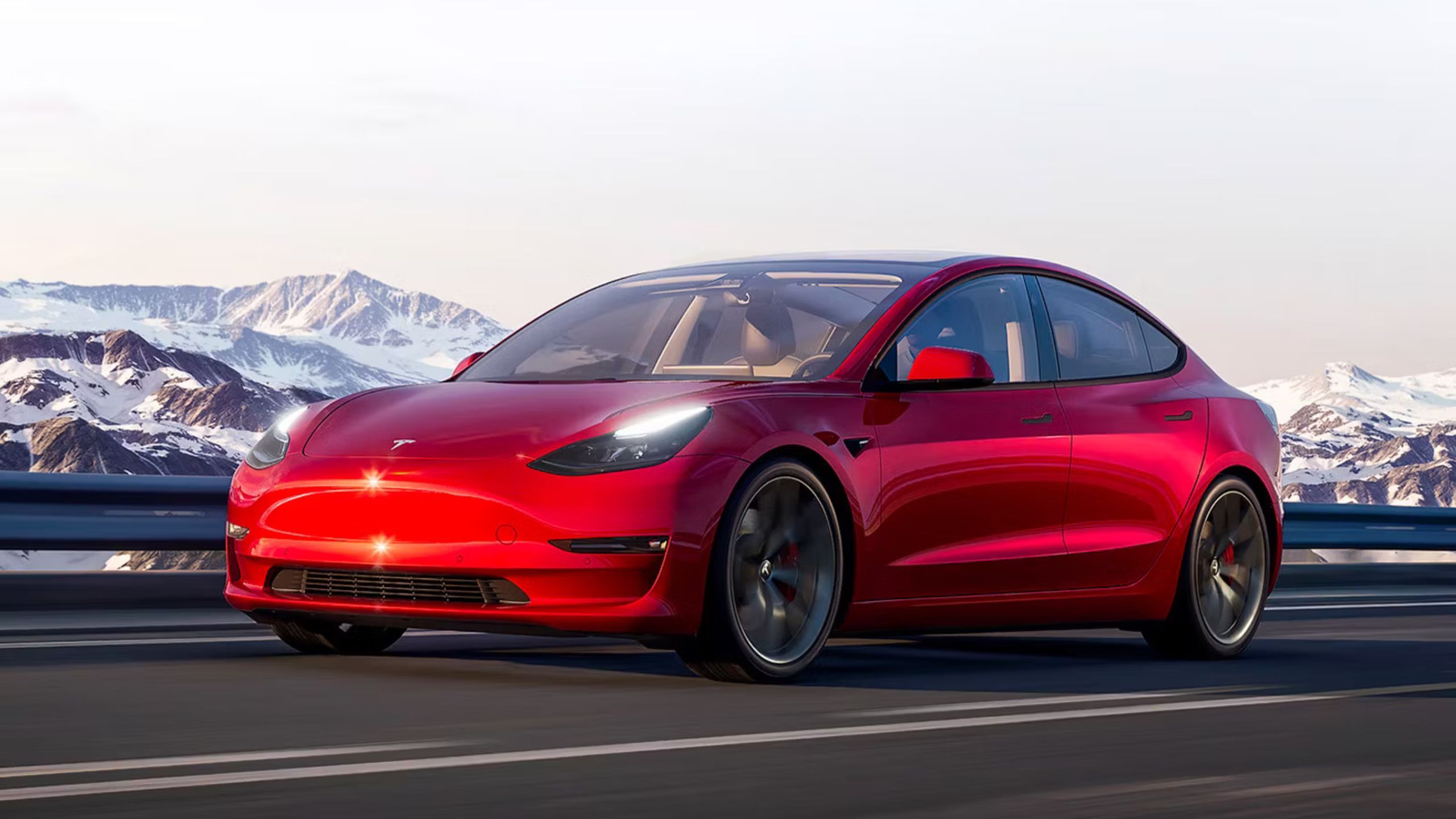
Tesla will reveal a robotaxi on August 8, says Elon Musk
Musk made the announcement hours after Reuters publish a report claiming Tesla had cancelled development on its $25,000 EV.
To put it simply, for years it’s been well understood that part of the master plan was to create autonomous vehicles capable of transporting passengers with no driver present. Musk had, in one of his more lofty visions, promised that Tesla owners would see a day when their cars would go out and pick up passengers, serving as a “Robotaxi,” and making them money while they slept.
In the past month, those of us who follow Tesla have been made to feel like we know just about as much as Jon Snow about Tesla’s future Robotaxi master plan, and their supposed $25,000 EV project codenamed Redwood. That is to say… nothing.
Since then, the skepticism that current model vehicles will live to see the software reach level five full self-driving, or even have the hardware capability to do so, has skyrocketed. Rumors abound that Robotaxi will surely have to be its own vehicle, on a totally new platform, to make this dream feasible. Or perhaps there will be limited Robotaxi capabilities on standard Tesla vehicles, and more fully fledged taxi capabilities on their own Robotaxi platform, performing more complex routes or carrying more passengers.
Some even believe that the Redwood project and the Robotaxi are actually the same platform, with perhaps a consumer model and a commercial model serving different purposes. The truth is, we know very little, and all this remains to be seen.
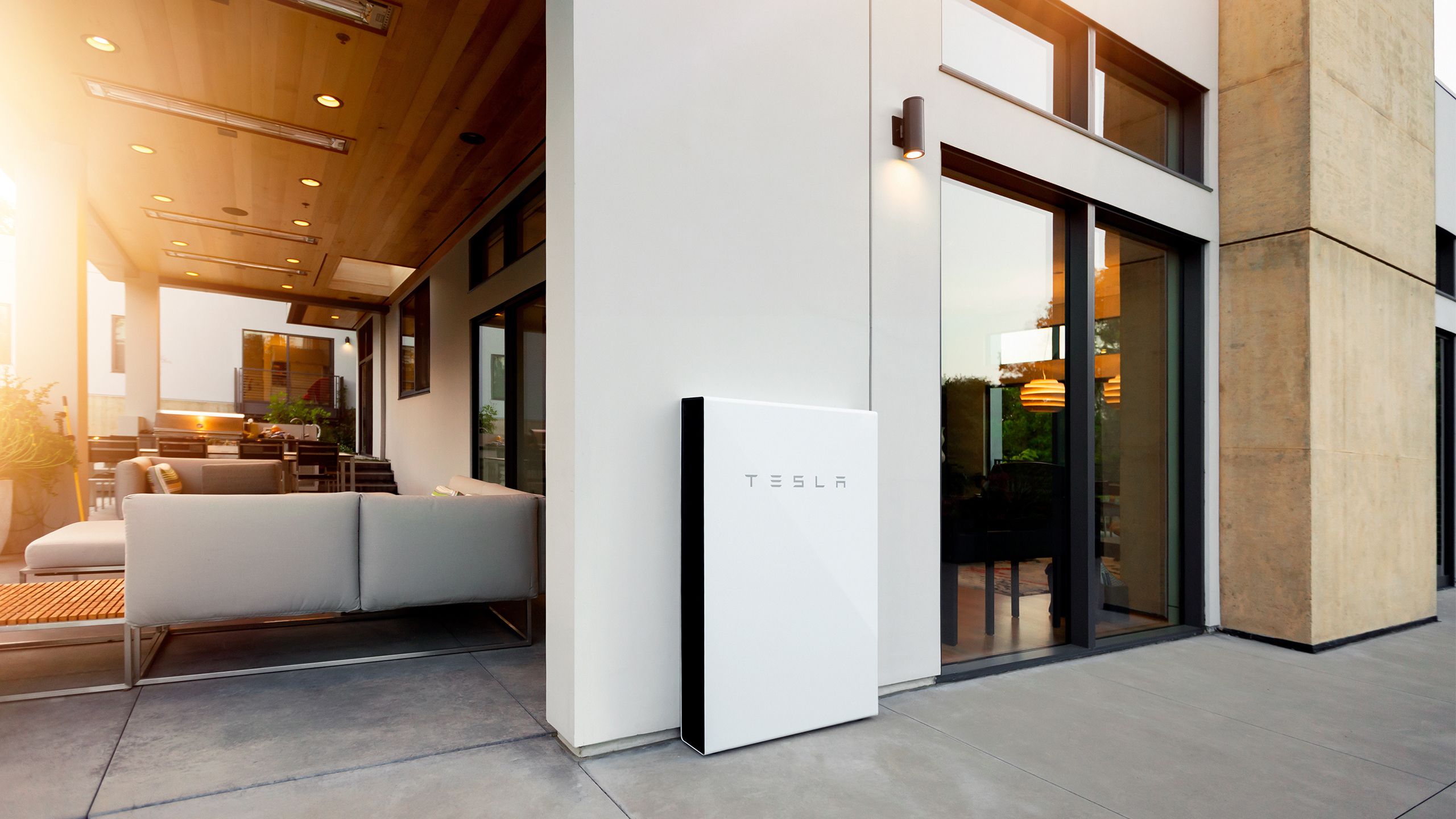 Tesla Energy might power the future
Tesla Energy might power the future
Battery packs for home and commercial use
Elon Musk and Tesla remain determined to grow the footprint of Tesla Energy and continuously improve battery technology for use in energy storage. The intermittent nature of wind and solar power is ultimately solved by a storage solution, and Tesla believes its battery packs are an integral part of that future.
The Powerwall product for home use and the Megapack projects for commercial are steps in that direction. In some select Texas markets, Tesla has even entered the utility game as Tesla Electric. What today represents a relatively small part of the company, accounting for less than 10% of overall revenue, might very well play an outsized role down the line.
The future of Tesla could be just about anything.
Tesla finds itself at a crossroads, or perhaps a Shibuya crossing of sorts, with many directions to choose from, attempting to pull off a well-orchestrated dance with a smooth landing for each and every project. Only time will tell where the company ends up, and whether it can take the fight to cheaper Chinese auto manufacturers, who don’t need profits to survive thanks to their implicit government backing. Or perhaps the future of Tesla lies in the fields of AI, energy, or robotics. If you ask its controversial leader, he might tell you the future of the company is all of the above.
Trending Products

Cooler Master MasterBox Q300L Micro-ATX Tower with Magnetic Design Dust Filter, Transparent Acrylic Side Panel…

ASUS TUF Gaming GT301 ZAKU II Edition ATX mid-Tower Compact case with Tempered Glass Side Panel, Honeycomb Front Panel…

ASUS TUF Gaming GT501 Mid-Tower Computer Case for up to EATX Motherboards with USB 3.0 Front Panel Cases GT501/GRY/WITH…

be quiet! Pure Base 500DX Black, Mid Tower ATX case, ARGB, 3 pre-installed Pure Wings 2, BGW37, tempered glass window

ASUS ROG Strix Helios GX601 White Edition RGB Mid-Tower Computer Case for ATX/EATX Motherboards with tempered glass…


